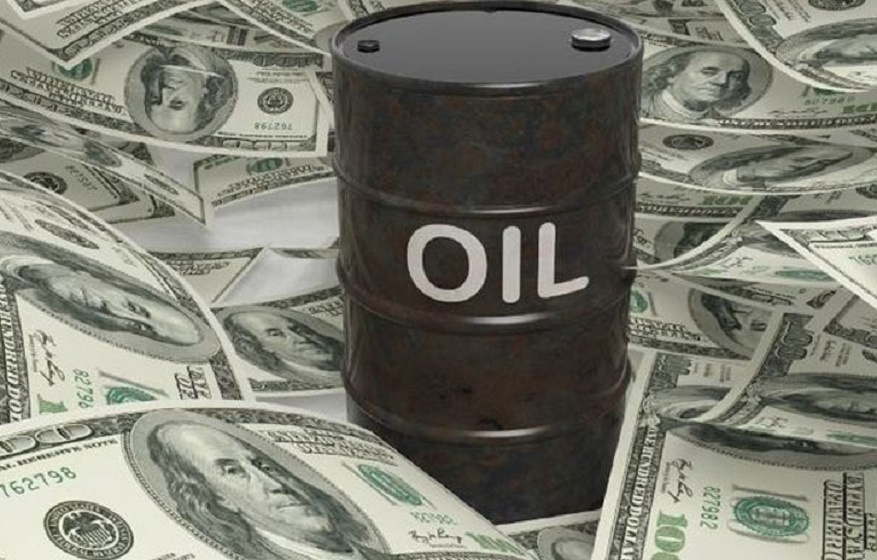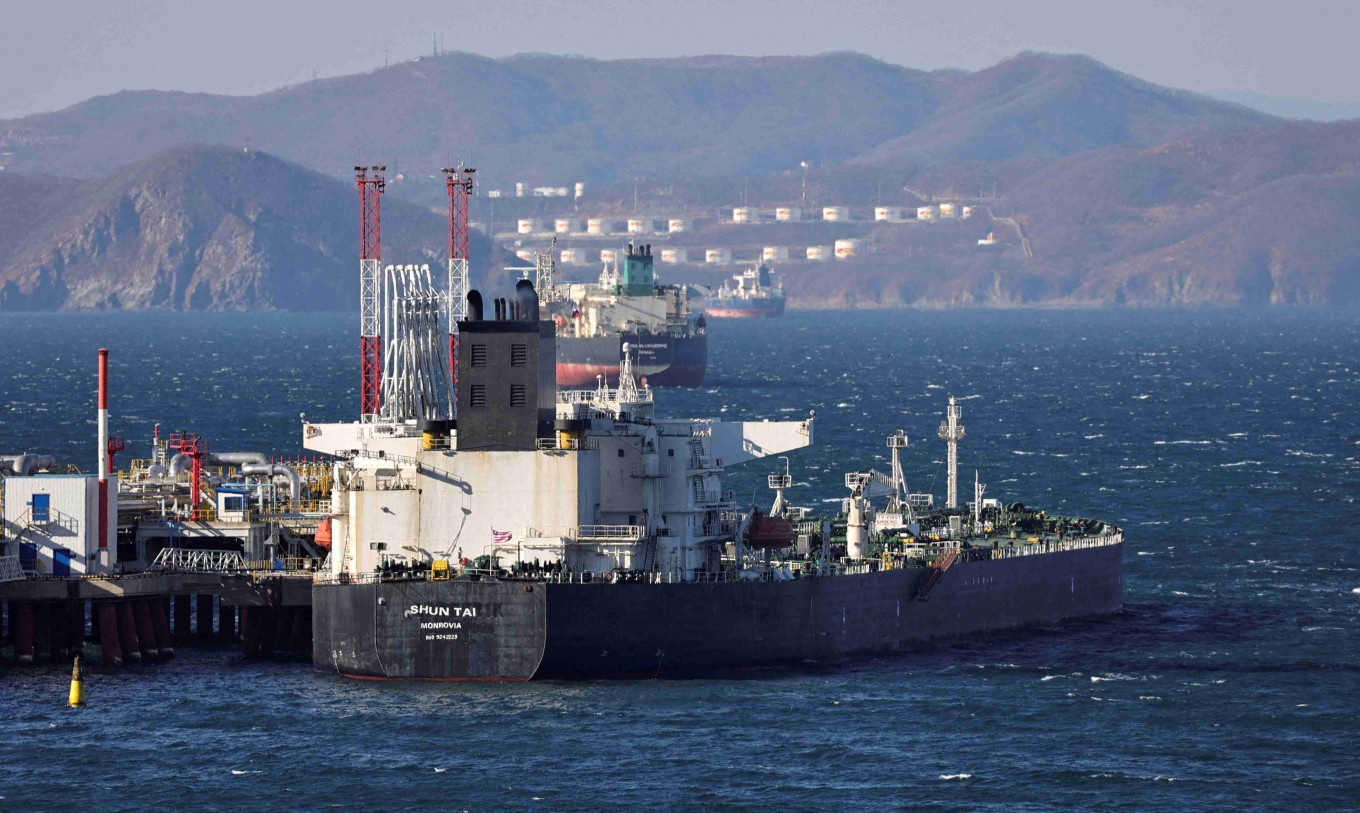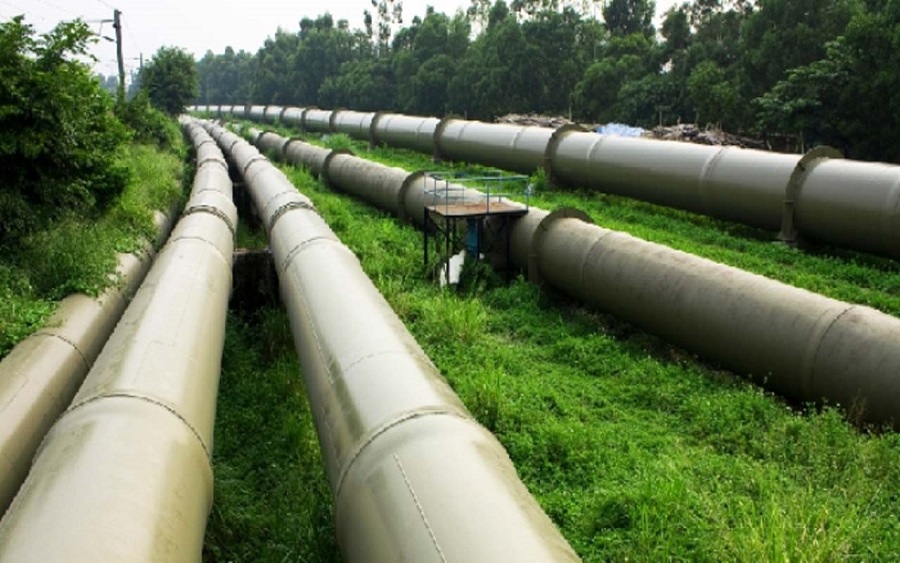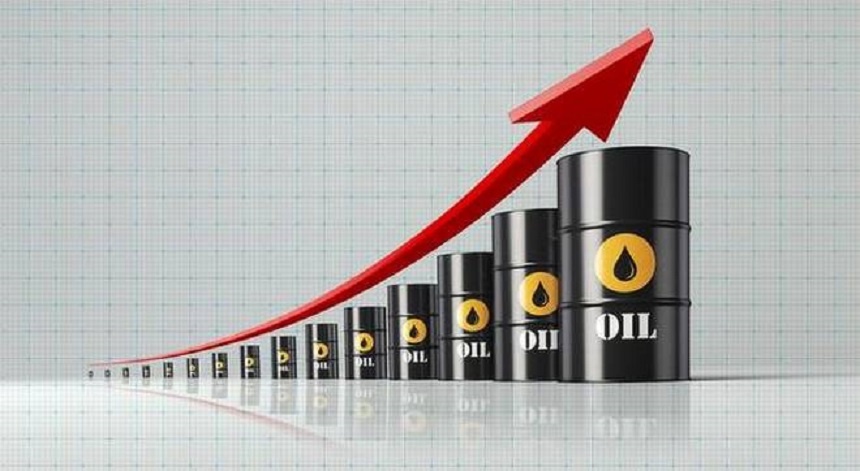Economy
Oil Falls Below $100 as US Excludes Energy from Russian Sanctions
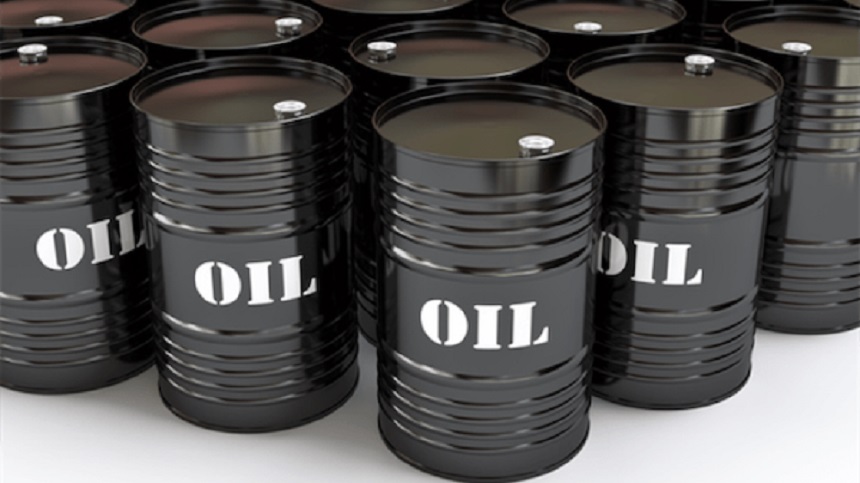
By Adedapo Adesanya
Oil prices retreated below $100 per barrel on Thursday after earlier hitting $105 per barrel as the United States prepared yet another round of sanctions on Russia in order to punish the country for its attack on Ukraine.
The decision of the US to exclude energy from its sanction plans caused the price of the Brent to fall by 2.19 per cent or $2.12 to $98.96 per barrel yesterday as the US West Texas Intermediate (WTI) jumped by 0.96 per cent or 88 cents to $92.98 a barrel.
American President Joe Biden recapped existing sanctions and announced new ones saying that the sanctions are purposefully designed to maximize the long-term pain inflicted on Russia.
Russian President Vladimir Putin launched an attack on Ukraine early Thursday after months of military buildup along the border.
The directive came days after the Kremlin leader formally recognized the independence of two pro-Moscow separatist regions in eastern Ukraine.
Reports showed explosions in Ukraine’s capital of Kyiv as the crisis took different turns.
Ukraine has declared martial law, with Ukraine president Volodymyr Zelenskiy calling on Ukrainians to defend the country on the cities’ streets, and offering to arm any citizens willing to join the fight.
The US has also sanctioned Russian banks that together hold around $1 trillion in assets while additional Russian elites and their family members.
Canada, Britain, the European Union, Australia and Japan were also among the countries to announce the first wave of sanctions against Russia earlier this week, targeting banks and wealthy individuals.
None of the first sanctions announced by these countries targeted any Russian bank that deals in Russian oil and gas transactions.
Also, the Energy Information Administration (EIA) reported that U.S. crude oil inventories had added 4.5 million barrels in the week to February 18.
This compared with a build of 1.1 million barrels for the previous week.
On the nuclear talk front, Iran’s chief nuclear negotiator has called on Western partners in the talks in Vienna to take certain decisions to seal a deal on reviving a landmark 2015 nuclear agreement that can see more than 1 million barrels per day of oil return to the market.
Economy
Champion Breweries, Others Help Nigerian Exchange Reach N85trn Valuation
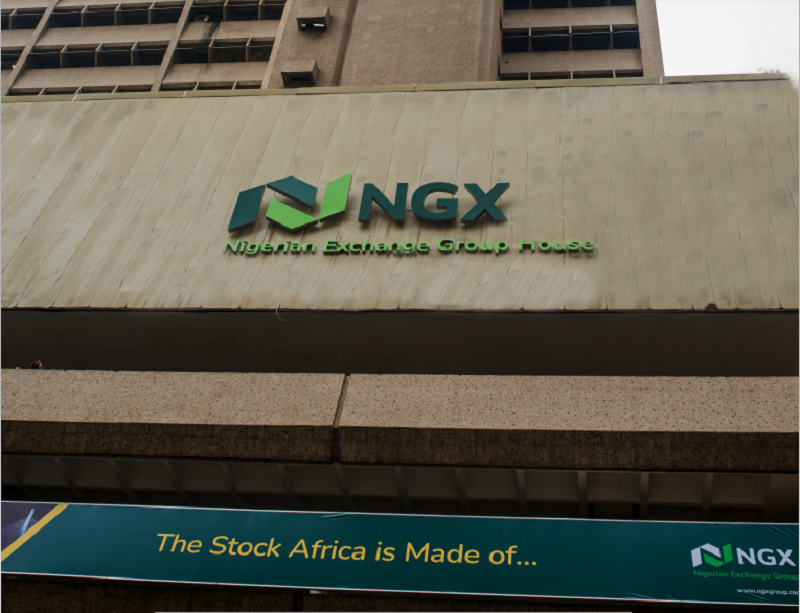
By Dipo Olowookere
The Nigerian Exchange (NGX) Limited closed higher by 0.94 per cent on Friday as a result of continued interest in the bourse.
Business Post reports that 48 stocks ended on the gainers’ chart during the session and 22 price losers, implying a positive market breadth index and strong investor sentiment.
Champion Breweries rose by 10.00 per cent to sell at N12.32, Ikeja Hotel appreciated by 10.00 per cent to close at N23.10, Unilever Nigeria grew by 10.00 per cent to N68.20, Nigerian Enamelware soared by 9.98 per cent to N27.00, and The Initiates surged by 9.95 per cent to N16.13.
On the flip side, Tripple Gee declined by 10.00 per cent to N3.51, Tantalizers dropped 10.00 per cent to N2.46, Sunu Assurances slipped by 6.64 per cent to N4.64, Ecobank crashed by 5.88 per cent to N32.00, and Neimeth depreciated by 4.55 per cent to N6.50.
Data showed that the consumer goods industry improved by 1.63 per cent during the session, the insurance sector increased by 1.32 per cent, the commodity index added 1.20 per cent, the industrial goods index jumped by 0.60 per cent, the banking space gained 0.59 per cent, and the energy counter chalked up 0.50 per cent.
Consequently, the All-Share Index (ASI) went up by 1,252.94 points to close at 134,452.93 points compared with the 133,199.99 points it finished on Thursday and the market capitalisation advanced by N792 billion to N85.055 trillion from N84.263 trillion.
Though activity was robust, it was short of the preceding trading session as investors pulled back, cherry-picking equities of interest to them.
The activity chart revealed that a total of 681.2 million shares valued at N17.0 billion exchanged hands in 26,931 deals yesterday compared with the 818.4 million shares worth N22.7 billion transacted in 22,955 deals a day earlier, showing an increase in the number of deals by 17.32 per cent, and a decrease in the trading volume and value by 16.76 per cent and 25.11 per cent, respectively.
Access Holdings led the activity table with 42.4 million equities sold for N1.2 billion, Universal Insurance transacted 40.7 million shares worth N29.7 million, Tantalizers exchanged 32.2 million stocks valued at N83.1 million, GTCO traded 28.7 million equities for N2.7 billion, and Ellah Lakes transacted 26.3 million shares worth N260.5 million.
Economy
NASD Closes Week With 0.53% Appreciation

By Adedapo Adesanya
The last trading day of this week on the floor of the NASD Over-the-Counter (OTC) Securities Exchange ended with a 0.53 per cent gain on Friday, July 25.
This was influenced by three securities led by Central Securities Clearing System (CSCS) Plc, which appreciated by N2.04 to trade at N49.47 per share compared with the preceding day’s N47.43 per share.
Further, Afriland Properties Plc gained N1.85 to end at N21.10 per unit versus the previous session’s N19.25 per unit, and FrieslandCampina Wamco Nigeria Plc advanced by 8 Kobo to close at N73.84 per share compared with Thursday’s N73.76 per share.
As a result, the market capitalisation on the bourse went up by N11.15 billion to N2.127 trillion from N2.116 trillion while the NASD Unlisted Security Index (NSI) grew by 1904 points to 3,633.79 points from 3,614.75 points.
Business Post reports that during the session, two securities declined in price, with Nipco Plc shedding N4.83 to sell for N240.00 per unit compared with the previous day’s N244.83 per unit, and UBN Property Plc lost 15 Kobo to trade at N1.95 per unit versus N2.10 per unit.
Yesterday, the volume of securities soared by 206.6 per cent to 1.4 million units from 471,023 units, the value of securities surged by 100.8 per cent to N35.5 million from N17.7 million, and the number of deals rose by 53.3 per cent to 69 deals from 45 deals.
Okitipupa Plc ended the day as the most traded stock by value on a year-to-date basis with 154.0 million units worth N4.9 billion, followed by Air Liquide Plc with 507.2 million units valued at N4.2 billion, and FrieslandCampina Wamco Nigeria Plc with 42.5 million units sold for N1.8 billion.
Industrial and General Insurance (IGI) maintained its position as the most traded stock by volume on a year-to-date basis with 1.1 billion units traded for N354.4 million, trailed by Impresit Bakolori Plc with 536.9 million units sold for N524.8 million, and Air Liquide Plc with 507.2 million units valued at N4.2 billion.
Economy
Naira Slips by 22 Kobo at NAFEM, Appreciates to N1,535/$1 at Black Market

By Adedapo Adesanya
The Naira appreciated against the United States Dollar at the black market by N1 on Friday, July 25 to quote at N1,535/$1, in contrast to the N1,536/$1 it was transacted on Thursday.
However, it depreciated against the greenback in the Nigerian Autonomous Foreign Exchange Market (NAFEM) window by 22 Kobo or 0.01 per cent to N1,534.66/$1 from the previous day’s value of N1,534.88/$1.
At the same official market, the Nigerian currency, however, improved its value against the Pound Sterling yesterday by N3.56 to close at N2,062.66/£1 compared with the preceding session’s N2,070.88/£1 and gained N8.60 against the Euro to finish at N1,800.84/€1 versus Thursday’s closing price of N1,807.06/€1.
The Nigerian Naira lost against the Dollar in the spot market on Friday amid renewed optimism on ongoing reforms and improvements in macroeconomic stability.
Analysts from Cordros Securities expect inflation to remain on a downward trend, especially as the Naira is projected to remain stable.
“Additionally, we expect petroleum product prices to remain stable, supported by low global oil prices, which should help maintain steady transportation costs,” it said in a note.
The firm explained that capital inflows have equally rebounded since global financial pressures eased in May, adding that elevated Naira yields and a stable FX market continued to attract foreign portfolio investments and bolster investor confidence.
Meanwhile, the crypto market was upbeat yesterday a a wave of ETF-driven optimism and post-lawsuit momentum builds despite price turbulence and large-scale liquidations.
Both Ripple (XRP) and Solana (SOL) are benefiting from increased interest and a more crypto-friendly regulatory environment in the US.
Solana (SOL) grew by 4.5 per cent to $186.21, Dogecoin (DOGE) jumped by 4.5 per cent to $0.2372, Ethereum (ETH) appreciated by 3.1 per cent to $3,738.89, Ripple (XRP) rose by 2.8 per cent to $3.11, Binance Coin (BNB) went up by 2.7 per cent to $782.91, Cardano (ADA) increased by 2.6 per cent to $0.8187, Bitcoin (BTC) expanded by 1.9 per cent to $117,388.79, and Litecoin (LTC) soared by 1.4 per cent to $113.15, while the US Dollar Tether (USDT) and the US Dollar Coin (USDC) closed flat at $1.00 each.
-

 Feature/OPED5 years ago
Feature/OPED5 years agoDavos was Different this year
-
Travel/Tourism9 years ago
Lagos Seals Western Lodge Hotel In Ikorodu
-

 Showbiz3 years ago
Showbiz3 years agoEstranged Lover Releases Videos of Empress Njamah Bathing
-

 Banking7 years ago
Banking7 years agoSort Codes of GTBank Branches in Nigeria
-

 Economy2 years ago
Economy2 years agoSubsidy Removal: CNG at N130 Per Litre Cheaper Than Petrol—IPMAN
-

 Banking2 years ago
Banking2 years agoFirst Bank Announces Planned Downtime
-

 Sports2 years ago
Sports2 years agoHighest Paid Nigerian Footballer – How Much Do Nigerian Footballers Earn
-

 Technology5 years ago
Technology5 years agoHow To Link Your MTN, Airtel, Glo, 9mobile Lines to NIN



